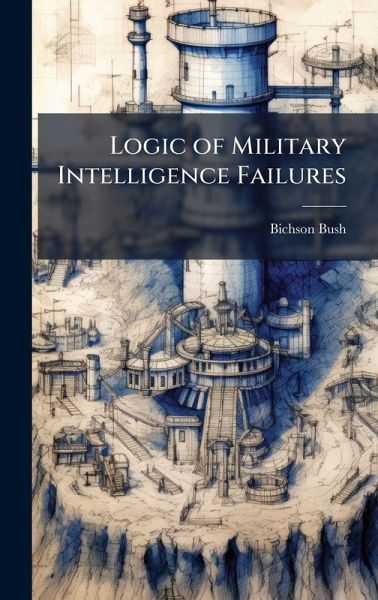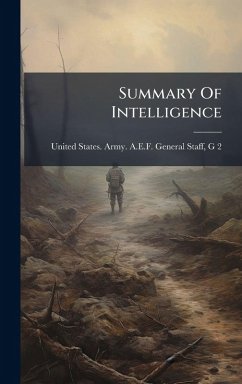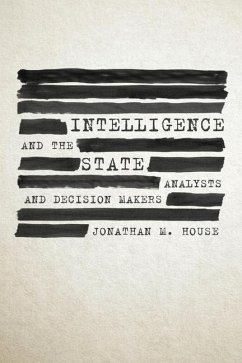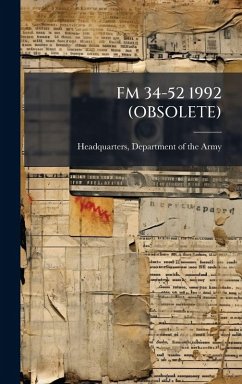
Logic of Military Intelligence Failures
Versandkostenfrei!
Versandfertig in über 4 Wochen
28,99 €
inkl. MwSt.
Weitere Ausgaben:

PAYBACK Punkte
14 °P sammeln!
This monograph addresses the research question: are military intelligence failures inevitable? If so, what are the causes and effects of intelligence failures and how can these causes and effects be mitigated or minimized in order to contain the degree of ramifications. The desire to explore this research question is twofold: (1) understand the effects of consequences in which military intelligence failures create unfavorable conditions for the conduct of military operations and (2) identify remedies for military intelligence failures. The methodology for this research consists of a thorough l...
This monograph addresses the research question: are military intelligence failures inevitable? If so, what are the causes and effects of intelligence failures and how can these causes and effects be mitigated or minimized in order to contain the degree of ramifications. The desire to explore this research question is twofold: (1) understand the effects of consequences in which military intelligence failures create unfavorable conditions for the conduct of military operations and (2) identify remedies for military intelligence failures. The methodology for this research consists of a thorough literature review on the characteristics of military intelligence failures as well as lessons learned from historical military intelligence failures, military blunders, or military misfortunes. The Easter Offensive in Vietnam 1972 and the Iraqi Invasion of Kuwait in 1990 served as case studies. Analysis of available literature was sufficient for making generalizations of the causes and effects of military intelligence failures to provide recommendations on how to mitigate or reduce the variables of military intelligence failures. The purpose is to provide objective analysis for policymakers/decisionmakers to take action. There is a need to recognize the implications of military intelligence failures in relation to military operations and take aggressive actions in order to eliminate or minimize such failures. The genesis of military intelligence failures is often linked to the interpretation of intelligence and how intelligence is used. That is why there must be emphasis on education and training of intelligence analysts as well as users of intelligence. Intelligence analysis is fundamentally a mental process; therefore, analysts need to know how to better understand, influence, and guide their mental processes. Policymakers/decisionmakers must also recognize their role in guiding the intelligence process in order to obtain objective analysis in time to develop a plan against i This work has been selected by scholars as being culturally important, and is part of the knowledge base of civilization as we know it. This work was reproduced from the original artifact, and remains as true to the original work as possible. Therefore, you will see the original copyright references, library stamps (as most of these works have been housed in our most important libraries around the world), and other notations in the work. This work is in the public domain in the United States of America, and possibly other nations. Within the United States, you may freely copy and distribute this work, as no entity (individual or corporate) has a copyright on the body of the work. As a reproduction of a historical artifact, this work may contain missing or blurred pages, poor pictures, errant marks, etc. Scholars believe, and we concur, that this work is important enough to be preserved, reproduced, and made generally available to the public. We appreciate your support of the preservation process, and thank you for being an important part of keeping this knowledge alive and relevant.












